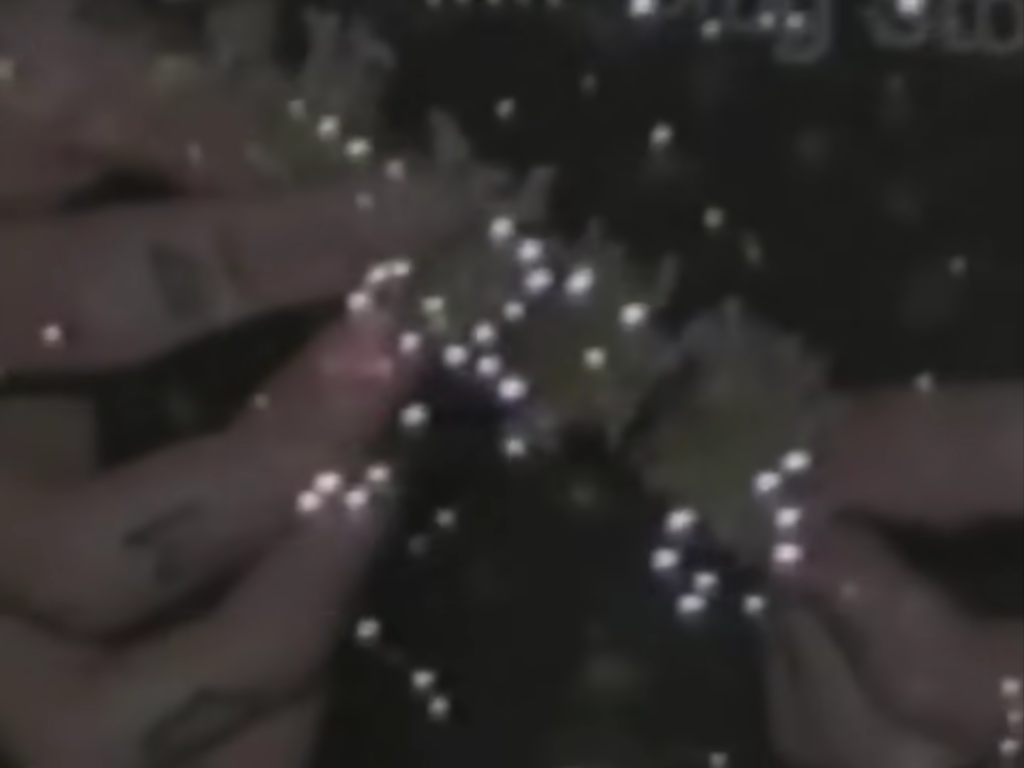Curtis Eggleston’s Hollow Nacelle, out last month from Expat Press, is, like reality, both weird and not at all so. His characters—bandmates—wanna blow up… Or at least have a girlfriend, or at least make art. This is a southern California dreamworld, only so, so gray. In prose that is wonderfully straight even when it muses and metaphorizes, Eggleston conjures up the terrifying banality of fantasy, the dumbness of miracles, and lays them flat on the page. Major miracles, as per usual: love, art, friendship. Plus—and without the corniness that sometimes comes with contemporaneity—there’s the (evil? stupid? neutral?) kinds of spells that, for better or for worse, enchant our late-modern world: an Uber-type driver who appears and disappears at will, the mystery of Instagram virality, a rock of black “goth” molly that turns “purple, lustrous” under the iPhone flashlight.
In Hollow Nacelle, magic is in minor stuff: the hypnotic choreography of a fly buzzing around a room, or when “amorphous furniture leans out of itself, gets nervous, returns to shape.” A car pulls up; your crush is inside. It’s when, as one chapter title goes, “bb thinks of lov and then she texts him.” My favorite line of dialogue is “Bro, I watch porn incognito. It’s like, tradition.” I guess I like it because it’s funny, but not even very much so; not super witty or anything, but just a thing to say while fiddling with the radio volume.
In 2016, Lil Peep, right on the brink of blowing up for real, says, between cuts to dimly glowing desert flowers and the sad wings of moths, while wandering around a gray roof overlooking the cloud-covered Hollywood hills: “If you wanna live a dream, I ain’t coming bitch I told you.” He did, though. Until he didn’t. And, through Eggleston’s characters, so do we—living and dying in the downtime between reveries, fits of boredom and creativity, doctor’s offices and wedding parties, sleeping and waking up. Until the book is over, and it all begins elsewhere. —Olivia Kan-Sperling
In the general dooziness of the world right now, I’ve found comfort in midcentury avant-garde composer Morton Feldman. Talking to Tyshawn Sorey a few weeks ago about his recent album pointed me to one of its inspirations, Feldman’s late work “For John Cage,” an hour-long aural meditation on the passage of time. The piece unrolls slowly, like most of Feldman’s work, sometimes passing just a couple of notes between violin and cello for long stretches, sometimes making way for snippets of aching melody. It’s surprisingly not at all tedious, and is in fact quietly seductive. This music brings my heart rate down. I’ve been enjoying the recording by Josje Ter Haar and John Snijders on the hat[now]ART label. —Craig Morgan Teicher
There’s nothing like losing a loved one to inspire a critical look at the idea of strictly linear time, and from there, a flirtation with the idea of parallel universes. Such speculative exercises are usually the domain of sci-fi, but Jai Chakrabarti’s A Play for the End of the World manages to elicit a similar effect while remaining in the realm of literary realism. The novel follows Jaryk, a man who lost most of his loved ones in the Holocaust, after the death of his last surviving friend, Misha. Jaryk travels to India to retrieve Misha’s ashes, and there he takes up Misha’s final project: working with refugee families to stage a play by Rabindranath Tagore. Time gently distorts. It is June 1972 in India, but it is also still and forever July 1942, when Misha and Jaryk were performing in the same Tagore play as soon-to-be refugee children in Warsaw. For a moment, the love between friends, the struggle to survive a relentless state, and the art that aids that struggle bring many lives into an eternal present. —Jane Breakell
from The Paris Review https://ift.tt/3B0dP76


Comments
Post a Comment